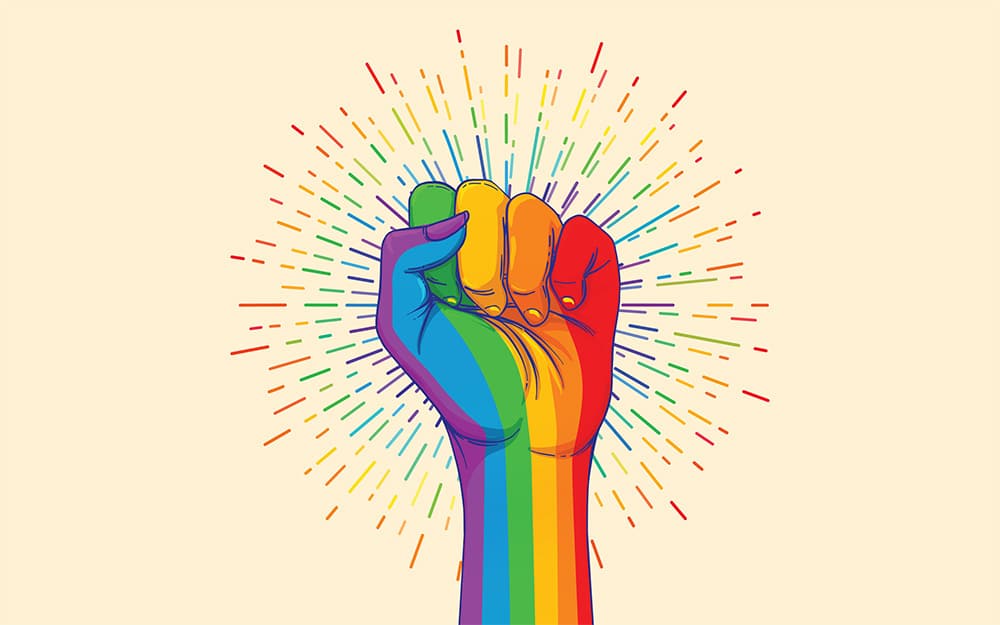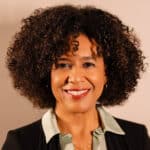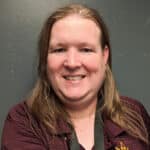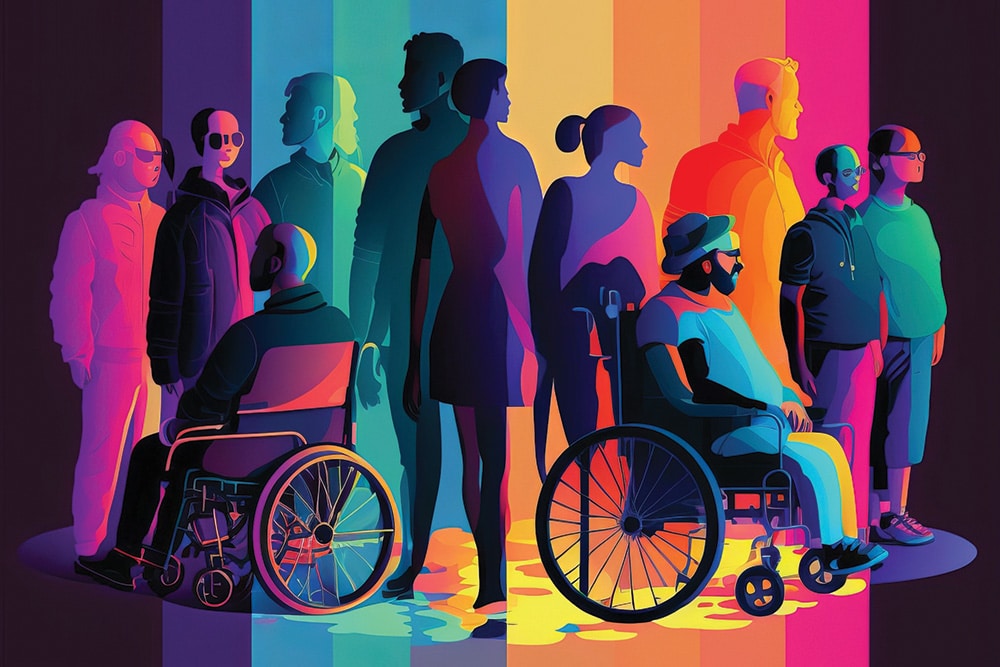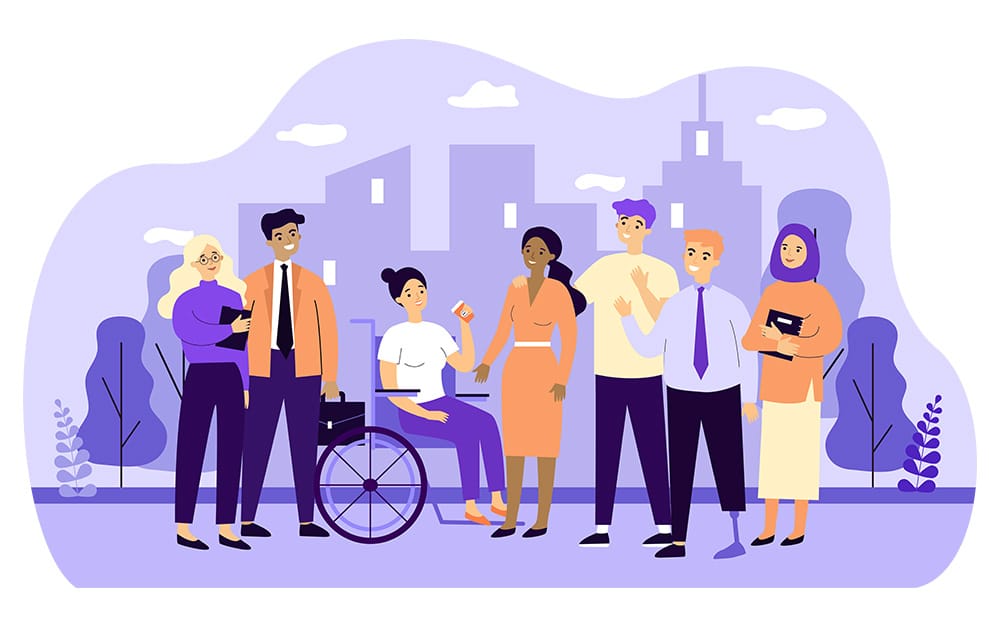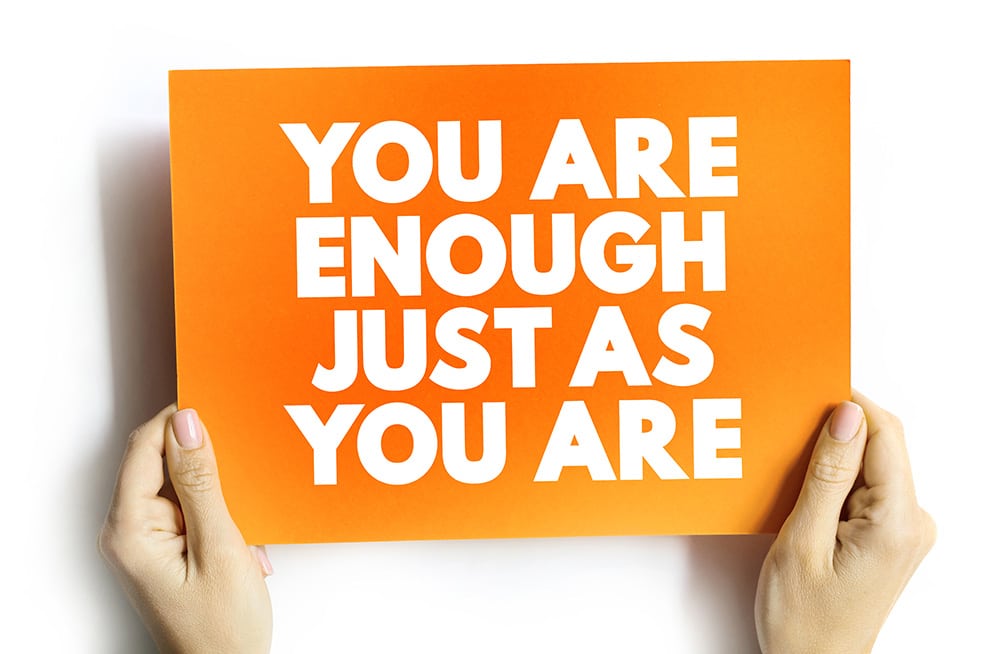Home » Allyship & Equity » Leadership in the Practice of Allyship
Allyship & Equity
DEI Focus
Leadership in the Practice of Allyship
stock.adobe.com / vgorbash
Leadership roles are constantly evolving and require both adaptability and a deep understanding of the people we lead and serve. In the practice of Allyship, leading by example, fostering diversity, and amplifying underrepresented voices are a few keys to inclusivity and equity.
We cross paths with our team members every day and often have no idea what challenges they must overcome to show up at work, for their families, and for themselves. While we obviously know much more about our co-workers than our customers, we do not necessarily know all the personal challenges they face, particularly if they are a member of a marginalized group. Our team members perform their tasks and engage with their supervisors and co-workers to deliver quality service to our customers. In doing so, all of us have a desire and right to be seen, understood, and respected. How do we as leaders show up for all of our team members in the important endeavor of equity and inclusion? One important avenue is through allyship: the practice of actively supporting and advocating for marginalized groups.
Cisgender, or simply cis, is an adjective that describes a person whose gender identity aligns with the sex that they were assigned at birth.
In late 2022, a member of our team disclosed a very personal journey and a request for understanding and support. At that time, I had known this dedicated individual for more than eight years. He presented as a cis male who was now sharing that she is a transgender female, Annika Finney.
I recall my reaction; I was incredibly moved at her courage and bravery to share her truth. I could not wait to meet with her, assure that she would be supported in a way that best suited her needs, and most of all, share my happiness for her in what I imagine has been a challenging journey thus far. Annika and I have had subsequent discussions surrounding Allyship, what that support looks like, and how to improve this amongst our team. With that, I encouraged Annika to share her voice and perspective on key things that have been impactful to her and others.

Creating Safe Space, Language and Ongoing Education
Creating safe space involves active listening without judging, respecting confidentiality, and using inclusive language. As a leader—or anyone for that matter—we can act through public advocacy and intervening when we witness discrimination and inequities to reinforce a safe environment for potentially marginalized team members. This is essential to the overall health of our team members which can have a positive impact on any organization.
Language and how we use it are the building blocks of all communication. Certain terms and familiar phrases can have a negative impact. When “sir” or “ma’am” are used incorrectly, to the individual it is a reminder how they do not conform to the societal image of their respective gender. Using more gender-neutral terms like “pal”, “friend” or “folks” are more acceptable. We learned in a previous column in Parking & Mobility by Kat Kibben about the importance of pronouns (e.g. They/Them, He/Him, She/Her) and how when used correctly these identifiers can positively impact safe space and inclusivity. In addition to gendered terms, other phrases are used regularly within current society such as “that’s insane” or “that’s crazy.” These unassuming statements can help perpetuate stigmas about mental illness and those who struggle with this. Using a statement like “that’s wild” instead can achieve the same result without the stigma attached. Learning to be more mindful and intentional with the language we use can make a significant difference to the way we are perceived by others.
2SLGBTQIA+ is an acronym for two-spirit, lesbian, gay, bisexual, transgender, queer and/or questioning, intersex, asexual, and the plus reflects the countless affirmative ways in which people choose to self-identify.
An important and necessary step to help create a safe space for our teams is knowing where to access available resources for ongoing education. Annika was instrumental in working with the Arizona State University HR Department, which was in the process of launching a new series of workshops called Sun Devil C.O.D.E. This program was created to foster a more inclusive, accepting, and affirming experience for our university community. This specialized training offering was geared toward educating our division and department leaders on the many ways to support members of the 2SLGBTQIA+ community and gain a deeper understanding of terms, language, and to provide clarity on the misconceptions that exist. All staff in a supervisory or leadership role attended the sessions that provide ongoing resources as needed. This program was designed to help further discussions and improve interactions within teams and in the daily interactions with customers and community.
In Conclusion
Leaders and team members alike can better prepare to support their teams as allies by gathering and sharing resources, learning how to model by example with the language we use, and by simply honoring every individual’s journey by creating a safe space to be themselves. Everyone benefits when people are respected and allowed to show up as their authentic selves and to that end, it is imperative for leaders and teams to learn the practice of Allyship in efforts to forge new and inclusive norms. ◆
Melinda Alonzo, CAPP, is Sr. Director of Parking and Transit Services for Arizona State University, and a member of IPMI’s Allyship & Equity Advisory Group.
-
This author does not have any more posts.
Annika Finney is Assistant Manager of Event Operations, Parking and Transit Services for Arizona State University.
-
This author does not have any more posts.


